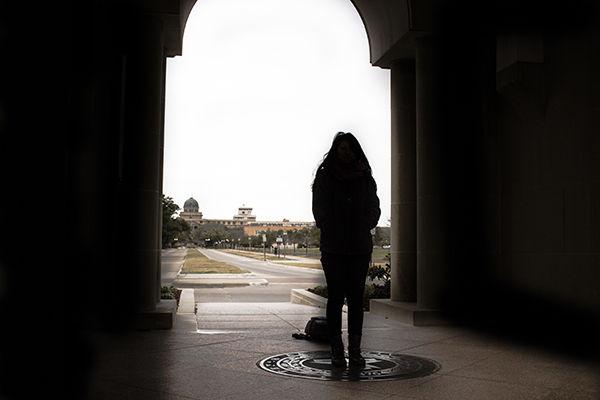The Texas A&M Council for Minority Student Affairs, an organization that advocates for the rights of undocumented citizens, has taken up arms against Lt. Gov. Dan Patrick’s movement to repeal the Texas DREAM Act, which offers in-state university tuition to children of immigrants who have come to the United States illegally.
Patrick took a firm stance against in-state tuition for undocumented students early on in his campaign for lieutenant governor. In a debate in April 2014 with San Antonio Mayor Julian Castro, Patrick addressed the concerns he had toward the act.
“We have limited resources in this state … I appreciate the fact that DREAMERS didn’t come here on their own, someone brought them here. I appreciate the fact that they finished high school and want to better their lives. But if there’s one seat left at the University of Texas, and the difference is that student or someone who is actually a citizen of the state — if I have to choose between the two … I will stand up for the citizen of Texas … the fact is I have to put American students first.”
Roxann Lerma, biochemistry senior and public relations representative for CMSA, said this sentiment is unfair to children of undocumented citizens.
“These kids know the Pledge of Allegiance and they know the Texas flag — they’re Texans. And some don’t even know that they’re undocumented,” Lerma said. “But Dan Patrick said that undocumented students are not Texan, and that people in Kansas are more Texan than undocumented students are. That’s not fair.”
Gabriela Castillo, political science sophomore and vice president of CMSA, said she fears her 13-year-old brother would be one of many undocumented children to live in the shadow of the eradication of the DREAM Act.
“How do I explain that to him? He’s been here since he was 4-years-old; he’s never been anywhere else. Texas is his home,” Castillo said. “How do I explain to him that college might be more expensive than it is now and that our family will not be able to afford it? It will prevent him from taking advantage of education. He’s never done anything wrong.”
Nery Guerrero, nutritional sciences junior and president of CMSA, said the movement against the in-state tuition law seems to be an unwarranted attack.
“It’s not even a political issue, it’s a humanitarian issue,” Guerrero said. “They’re attacking and generalizing the entire undocumented community, saying we shouldn’t get an education. It’s very important that Texas sees these faces and hears from them, because you are taking education from deserving minds.”
Castillo said undocumented students receiving in-state tuition are required by the DREAM Act to sign an affidavit stating that they will apply for citizenship as soon as they are eligible.
“People think we’re getting a free ride with in-state tuition, and we’re not,” Castillo said. “We have to promise to apply for citizenship as soon as we can.”
House Bill 360, filed by Rep. Mark Keough (R-The Woodlands) is the bill CMSA members are concerned with. Also known as the Texas Fair Tuition Act, the bill states that any person filing for in-state tuition must show proof of citizenship or legal residency to be approved. This refutes the DREAM Act, which does not require students to be citizens at the time of application.
Melanie Garza, agricultural leadership and development junior and secretary of CMSA, said CMSA has teamed up with several organizations around the United States with the same goal through “United We Dream” — the largest immigrant youth-led organization in the nation advocating for fair treatment of immigrant youth.
Garza said CMSA officers engage frequently in conference calls and attend meetings with other organizations affiliated with United We Dream to discuss strategies, including engaging politicians on social media.
“Everyone has their affiliate leaders who target different areas like social media,” Garza said. “We have people in Austin doing research right next to the capital about which politicians support us and who doesn’t, and to the people who support us we tweet saying, ‘Will you support us again?’ and things like that.”
Castillo said in addition to a collaborative effort on a nationwide level, CMSA is placing major focus on informing students at Texas A&M about the benefits of in-state tuition for undocumented students.
“In order for us to move effectively, we have to inform the uninformed and encourage our community,” Castillo said. “By doing this, our community will feel like there’s someone that supports them.”
Guerrero said to provide this information, the CMSA will put on several events, including a professor’s panel on Feb. 17 featuring professors who will advocate for the economic benefits of offering in-state tuition to undocumented students.
Alfredo Garcia, economics senior and member of CMSA, said many undocumented citizens are victims of circumstance, and it should not prevent them from receiving the education they may deserve.
“We come from poor neighborhoods and do the best we can. All we ask is for the opportunity to give back through education,” Garcia said. “I think it’s common sense that people who deserve it and have the potential should not be denied the opportunity to go to college.”
Castillo said she is appalled that politicians seem to be throwing around a topic of such importance.
“What upsets me most is the fact that such issues that can affect so deeply the lives of people is being used as a political issue that politicians can toss around as freely as they please,” Castillo said. “They’re using undocumented students and their life and their story for their own political fight.”
Not documented, and not voiceless
February 4, 2015

Photo by Tim Lai
0
Donate to The Battalion
$1765
$5000
Contributed
Our Goal
Your donation will support the student journalists of Texas A&M University - College Station. Your contribution will allow us to purchase equipment and cover our annual website hosting costs, in addition to paying freelance staffers for their work, travel costs for coverage and more!
More to Discover









